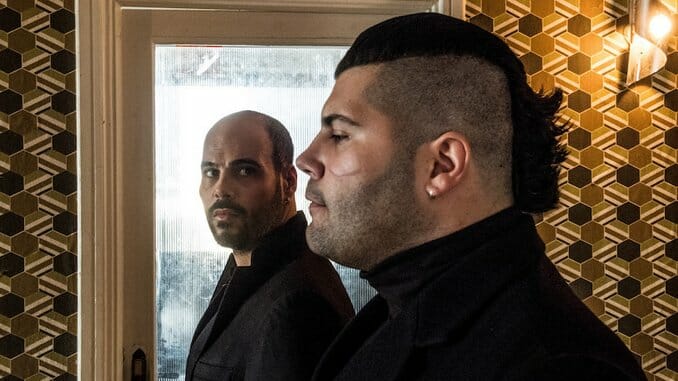If You Haven’t Seen Gomorrah, One of the Greatest Crime Series Ever Made, Remedy That Today
Photo Courtesy of HBO Max
There’s no such thing as a bad time for an American fan of crime drama to discover Gomorrah, the incredible Italian series first broadcast on Sky Atlantic, but the release of the third season on HBO Max last week is as good an excuse as any. (Season 3 was released in 2017; there has been a fourth season since, but we’re a couple years behind over here). There are a thousand-and-one ways to praise this show, all of them legitimate, but let’s start here: Roberto Saviano, whose novel spawned the 2008 film that spawned the eventual series, created something so brutally real that the actual Camorra—the Italian mafia based in and around Naples—planned to have him killed. This necessitated a five-man police team to provide around-the-clock protection and, eventually, his temporary self-exile from Italy.
The experience of watching the original movie in a New York City theater is, for me, an unforgettable one—never before or since have I seen something so raw, so bereft of redemption, and so committed to the dull misery and relentless violence of the Neapolitan criminal underworld that it drained every bit of romance from the very idea of a mafia. The winking romance of a show like The Sopranos was entirely missing; it was a simple onslaught of cruelty and corruption and hopelessness. It was not a fun experience, but it was a powerful and sobering one.
The TV series, which debuted in 2014, is a slightly different animal. Here we do see the tinges of romance and human interest within the criminal syndicates, and it falls more traditionally into the mafia genre we’re most familiar with in America. Where the movie made its point through a series of oppressive gut punches, the show necessarily relies more on character and the interpersonal drama between the mafiosos. That said, it’s utterly unique in the elements it retains from the film, and from Saviano’s writing; it works with an ugly, gray palette, refusing to flinch from the obvious poverty of the Naples neighborhood where it is filmed. This isn’t the Italy of American imagination. Instead, it’s a claustrophobic panorama of high-rise apartments, dirty streets, and people who are obviously and inevitably prisoners of their birth.
Where the film shattered you, though, the show envelops you in the story of two singularly great characters: Gennaro Savastano (Salvatore Esposito), the soft scion of a prominent mafia clan who transforms into a merciless leader, and Ciro Di Marzio (Marco D’Amore), one of the clan’s enforcers and the one responsible for making Genny into the kind of man who can thrive in their savage environment. Both actors transcend superlatives, and following the evolution of their characters is the chief joy of this series. (On a side note, Esposito was brought in for the fourth season of Fargo, and their ridiculous misuse of this talented import was one of the bigger whiffs of a semi-disastrous season.) The production is stellar, the minor characters are riveting, the acting is uniformly tremendous, but ultimately this show is about Genny and Ciro, their friendship, their hatred, and their eventual reunion that culminates in the third season. Together, Esposito and D’Amore have the kind of chemistry that comes around maybe once in a generation, and are worth the price of admission alone. The fact that everything else in the show is of the finest quality is the proverbial icing on the cake, but the principle duo is what makes Gomorrah timeless.